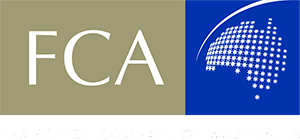Buying a Franchise
Guidelines
In Australia today there is a franchise operating in almost every type of business category, with varying levels of complexity and cost.
Prior to buying a franchise, potential franchisees should do the following;
- Assess your own reasons for wanting to own a business;
- Assess the lifestyle and income implications of owning and operating a business;
- Assess the franchise opportunities consistent with 1 and 2 above.
- Build your understanding of the franchise relationship by reading the Franchise Guide.
- Narrow your franchise search to a few systems, then request further information.
- If appropriate, and you are comfortable with the decision, select a system and commence the application process.
- Ensure you have adequate borrowing capacity, including working capital, to successfully establish this type of business.
- Be sure you receive and evaluate all disclosure material during the application process.
- Be sure you receive legal and accounting advice from lawyers and accountants with franchise experience before making any final commitment.
- Use the cooling-off period to check your facts and figures and determine if you still want to proceed.
This is by no means an exhaustive list of things you should consider prior to buying a franchise, but if you work through these 10 steps you will be at less risk of rushing headlong into a hasty and ill-informed decision.


